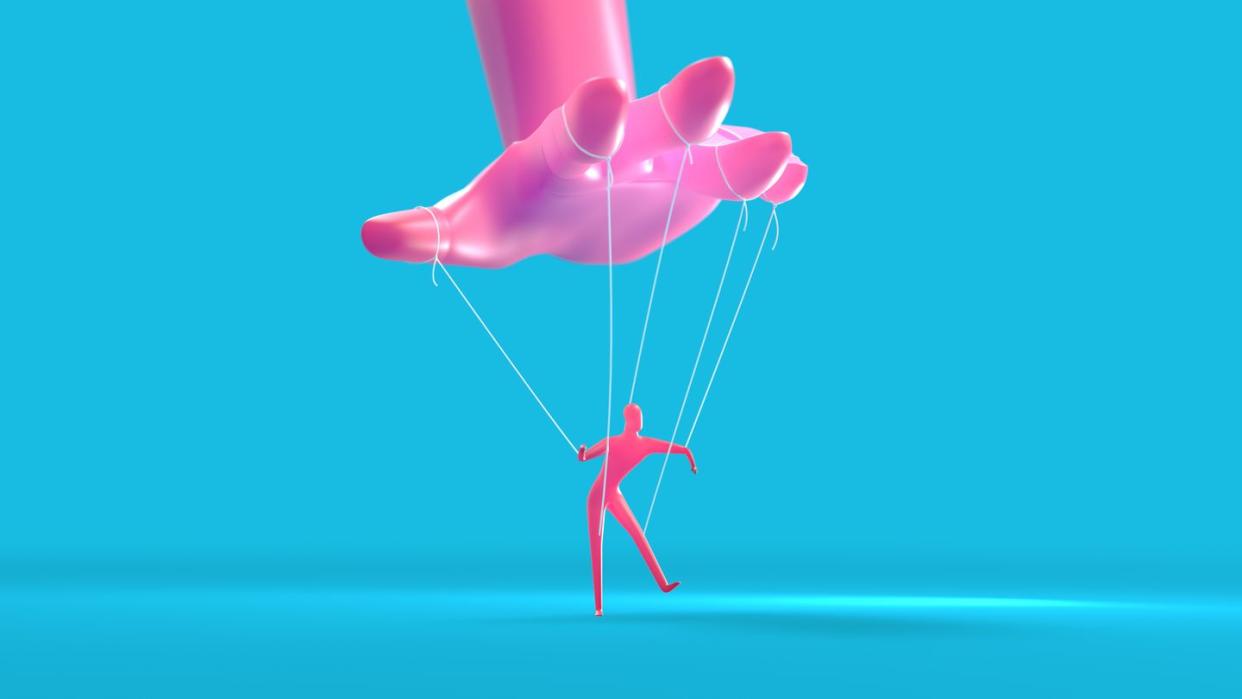A Scientist Has Confirmed That Humans Have No Free Will

- Oops!Something went wrong.Please try again later.
"Hearst Magazines and Yahoo may earn commission or revenue on some items through these links."
Stanford neurobiologist Robert Sapolsky believes humans have no free will.
By studying baboons in Africa and human behavior for decades, he’s concluded neurochemical influences determine human behavior.
The supposition should create a more just world, Sapolsky claims.
Stanford University neurobiologist Robert Sapolsky wants everyone to know that, unfortunately, we humans have no free will. None, whatsoever.
Sapolsky told the Los Angeles Times that he’s spent his life studying human behavior—along with baboons in Africa—and believes that every decision, no matter how big or small, comes predetermined thanks to neurochemical influences. Neurons simply react to outside influences, whether from events decades or milliseconds before, that they can’t control.
“The world is really screwed up and made much, much more unfair by the fact that we reward people and punish people for things they have no control over,” Sapolsky told the LA Times. “We’ve got no free will. Stop attributing stuff to us that isn’t here.”
Sapolsky, whose new book is called Determined: A Science of Life Without Free Will, believes people like drunk drivers are no different than anyone else and shouldn’t be treated any different. He agrees this isn’t a popular position and would love to avoid arguments. “I’m really, really, really trying not to sound like a combative jerk in the book,” he said.
It’s pretty normal to attribute some actions to outside influences—from circumstances to genetic conditions—but Sapolsky holds the uncommon belief that every possible action is already determined.
In the LA Times interview, Sapolsky offered an example of a student picking up a pen in his office, saying that the action was determined by impulses beyond the student’s conscious control. (He dismissed well-known studies that show people who read about no free will are more likely to respond by cheating on a test.)
Sapolsky told the LA Times that no person is morally responsible for any single action of theirs. He likens humans to machines—albeit machines that feel emotions based on our experiences. It follows, then, that you can’t blame a machine for wrongdoings, all while admitting you can’t pencil out how emotions can impact a machine.
“It is logically indefensible, ludicrous, meaningless to believe that something ‘good’ can happen to a machine,” Sapolsky writes in Determined. “Nonetheless, I am certain that it is good if people feel less pain and more happiness.”
In the world of neurobiology, Sapolsky’s claims fall into the minority. His self-created reality to give reason to the world is embraced by some, but deemed dangerous by others. Peter Tse, a Dartmouth neuroscientist, told the LA Times that neural activity is highly variable and identical inputs often result in varying responses. There’s too much variability to call behavior predetermined, he said. “A person can be both brilliant and utterly wrong,” Tse said about Sapolsky.
“Those who push the idea that we are nothing but deterministic biochemical puppets are responsible for enhancing psychological suffering and hopelessness in this world,” Tse said.
You Might Also Like

